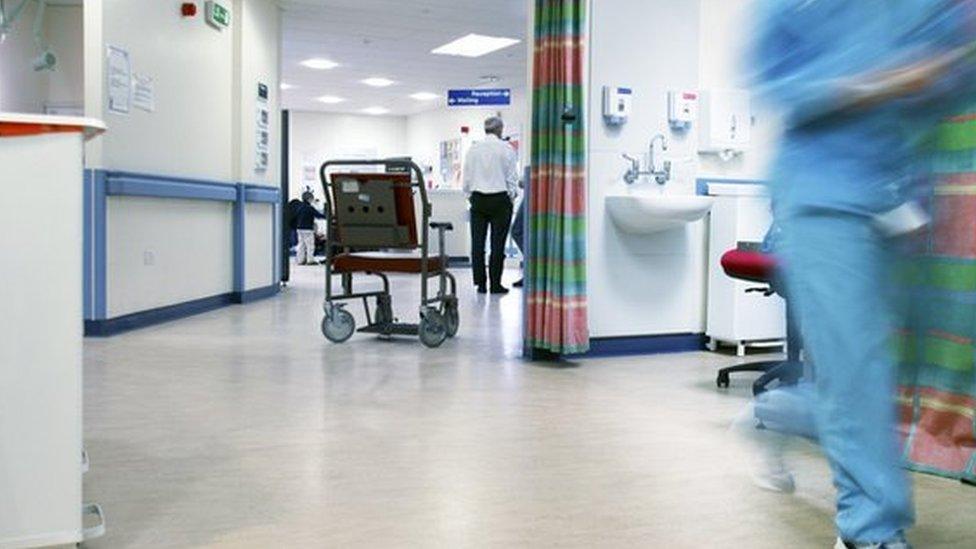NHS trusts may hit £2.3bn deficit, report warns
- Published

NHS trusts in England are on course to be £2.3bn in the red by the end of the financial year, according to a leading health think tank.
Based on data from about one in three trusts, the King's Fund said the financial position was getting worse and performance was deteriorating.
It said this year was shaping up to be "make or break" for the NHS in England.
The Department of Health said the service, despite being very busy, was performing well.
This report - based on health service data and feedback from finance directors at about one in three trusts - offers a gloomy prognosis for the NHS.
Three months ago, the King's Fund thought the overspend for trusts in this financial year in England could top £2bn. Now it is forecasting a net deficit of £2.3bn by the end of March.
The findings suggest two-thirds of trusts expect to overspend by the end of the year, including 89% of acute hospital trusts.
Sceptical about savings
A clear majority of finance directors from trusts and local commissioning groups were sceptical that the health service in England could meet annual efficiency savings of 2-3% up to 2020-21, as required by the NHS masterplan known as the Five Year Forward View.
One area that has been identified for savings is spending on agency staff.
Last year, the Department of Health imposed a cap, but more than half of finance directors (53%) were concerned they would not be able to meet these limits.
More than 20% thought the cap would affect their ability to recruit in order to provide safe care.
The report highlights increasing concerns about the quality of services. A majority of the trust finance directors who responded - 53% - thought things had got worse in the last year.
They were particularly worried about delays in A&E.
Many also expressed concern about delayed transfers of care and staff morale.
'Increasing concerns'
Commenting on the findings, the King's Fund's chief economist, Prof John Appleby, said they showed the NHS faced a huge financial challenge.
"Even with the additional funding recently provided by the Treasury and a big switch from capital to revenue spending, it is touch and go whether the Department of Health will be able to balance its budget at the end of the year.
"At the same time, performance is deteriorating with key targets being missed with increasing regularity and increasing concerns being raised about the quality of patient care. This is shaping up to be a make-or-break year for the NHS."
Health Minister Alistair Burt said: "There should never be a choice between providing safe care - our top priority - and balancing the books, which is why we're investing £10bn to fund the NHS's own plan for the future, including nearly £4bn next year.
"Despite being busy, the NHS continues to perform well - last year the service performed 1.6 million more operations and treated 2,100 more people every day within the four-hour A&E target compared to 2010."
- Published20 November 2015

- Published9 October 2015
